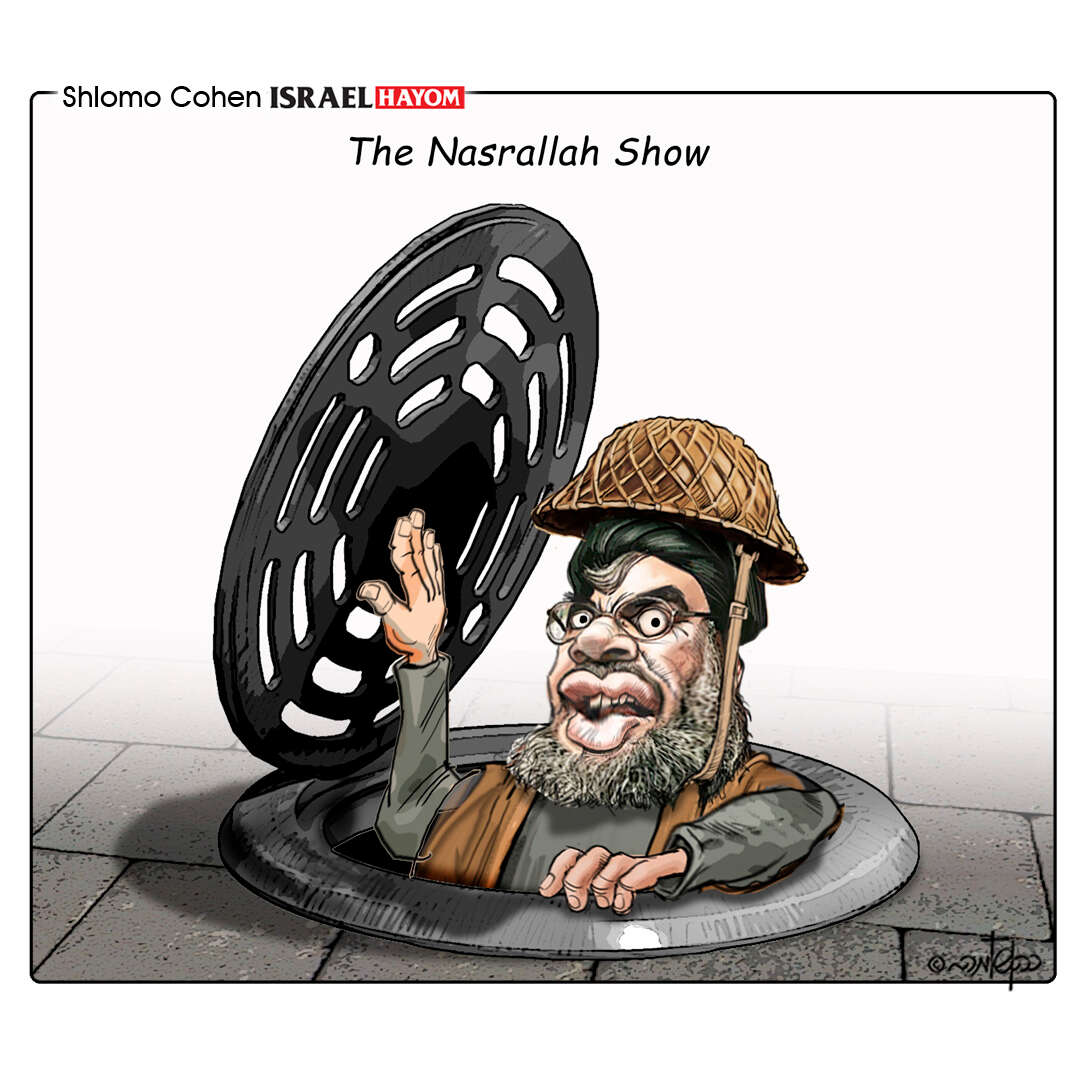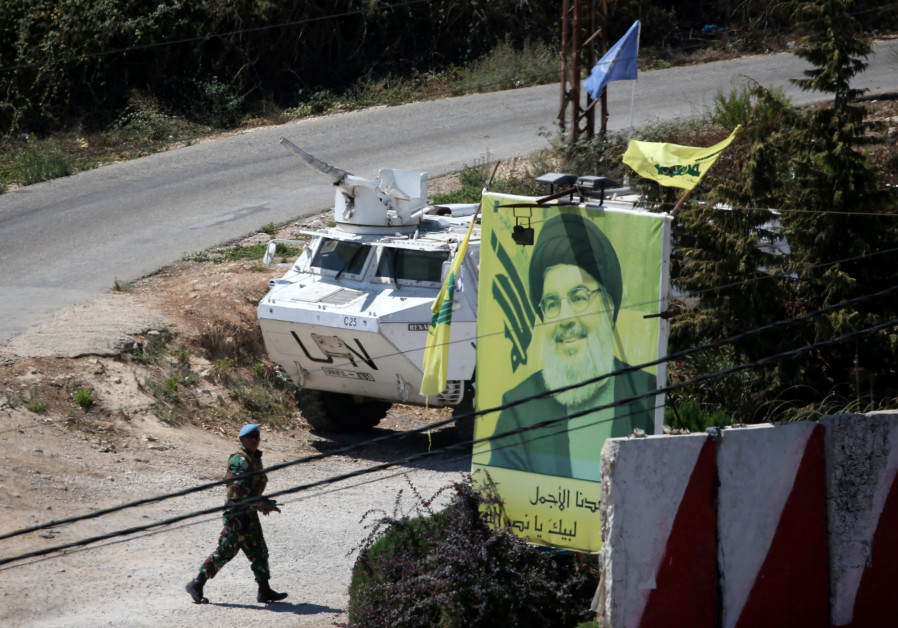Netanyahu: 'The man in the Beirut bunker knows exactly why he's in bunker'
Prime Minister Binyamin Netanyahu referred to Sunday's barrage on Hezbollah positions in retaliation for their attack on an IDF vehicle on the northern border: "We acted with determination and responsibility yesterday. We kept our citizens safe and also our soldiers.
"The man in the Beirut bunker knows exactly why he's in the bunker. We will continue to maintain Israel's security - at sea, land, and air, and continue to act against the precision missile threat."
Yesterday, Hezbollah operatives fired anti-aircraft missiles at Israel, after which the IDF fired 100 shells in response.
The exchange of fire over the Lebanon-Israel border comes one week after Hezbollah accused Israel of committing a drone attack on its southern Beirut position.
On August 24, Israel also said it had carried out strikes in Syria to avert an Iranian drone attack on the Jewish state. Hezbollah said those strikes killed two of its members.
Israel has carried hundreds of strikes in war-torn Syria, mostly against what it says are Iranian or Hezbollah targets.
PM Netanyahu: We acted yesterday with determination and responsibility. We maintained the security of our citizens and the safety of our soldiers. pic.twitter.com/ZFbp1ncLkW
— Ofir Gendelman (@ofirgendelman) September 2, 2019
Senior official: Nasrallah sought ceasefire as IDF responded to Hezbollah strike
The Lebanese government reached out to three countries on Sunday on behalf of Hezbollah in an effort to convey to Israel that it was not interested in any further escalation, as the IDF hurled some 100 shells at targets across the border in response to the terror group’s firing of anti-tank missiles at Israel, a senior defense official said Monday.Top defense official: In 24 hours, Israel attacked various 'fronts'
The message from Hezbollah leader Hassan Nasrallah was relayed by Lebanese Prime Minister Saad Hariri to the governments of France, Egypt and the US, the official told Israeli reporters in a phone briefing.
“We received inquiries from Lebanon through three countries that implored us that there was no need to respond,” he said.
At 4:30 p.m. on Sunday, the IDF released a statement saying a barrage of Hezbollah anti-tank missiles hit an army base as well as military vehicles near Avivim. The army then launched heavy retaliatory fire.
The senior official briefing reporters said that Israel had not taken Nasrallah’s message into account in its eventual decision to hold its fire. “Nasrallah’s considerations do not bother me, as long as we advance our goals against the threats.”
“The bottom line is that Hezbollah sent us messages to hold our fire,” the official boasted.
Hezbollah’s precision missile program is the State of Israel’s top priority, right after working to prevent Iran from obtaining a nuclear capability, a top defense official said on Monday, admitting, for the first time, that Israel has carried out attacks against different fronts beyond Syria.
According to the official, Israel has been operating against Iran in several arenas and operated in several additional fronts within a recent 24-hour span of time. "In recent days, we were attacked from several fronts," the official said. "We were in simultaneous attack mode in multiple places."
“Had we had not acted correctly we would be in a different reality today,” he said.
"To prevent this consolidation by Iran, we are carrying out many operations that nobody knows anything about,” he said, adding that the operations are carried out by the IDF and the Mossad.
"Everything we have done during the last few weeks and days was planned and executed exactly how we wanted," he said. “Everything is part of our overall strategy that we are managing in several different ways and in several different arenas.”
The official spoke a day after Hezbollah and Israel exchanged blows along the Lebanese border in an attempt by the Iranian-backed guerilla organization to exact a price from Israel for the bombing of a terrorist cell in Syria in late August. While no IDF troops were injured, Israel fired over 100 artillery shells towards targets in south Lebanon in response to the attack and airlifted two uninjured soldiers to Rambam hospital in Haifa.
“We can’t hide injured troops in Israel for half an hour,” he said, disputing claim in Lebanon that troops had been injured in the attack.
































.jpg)




